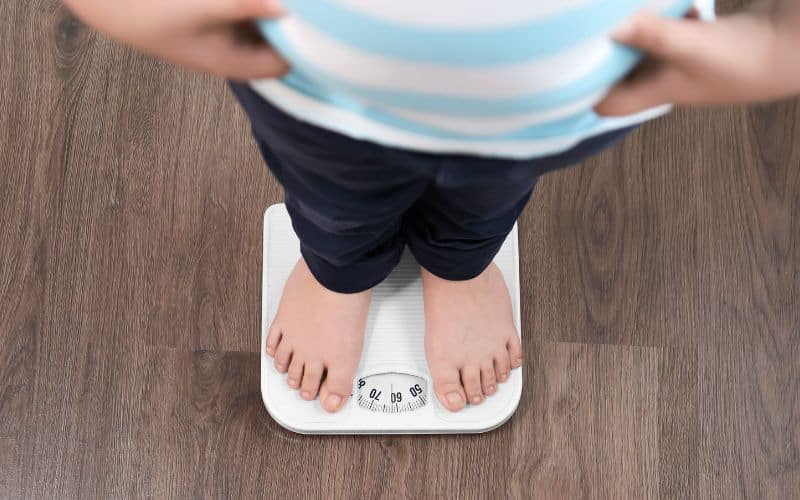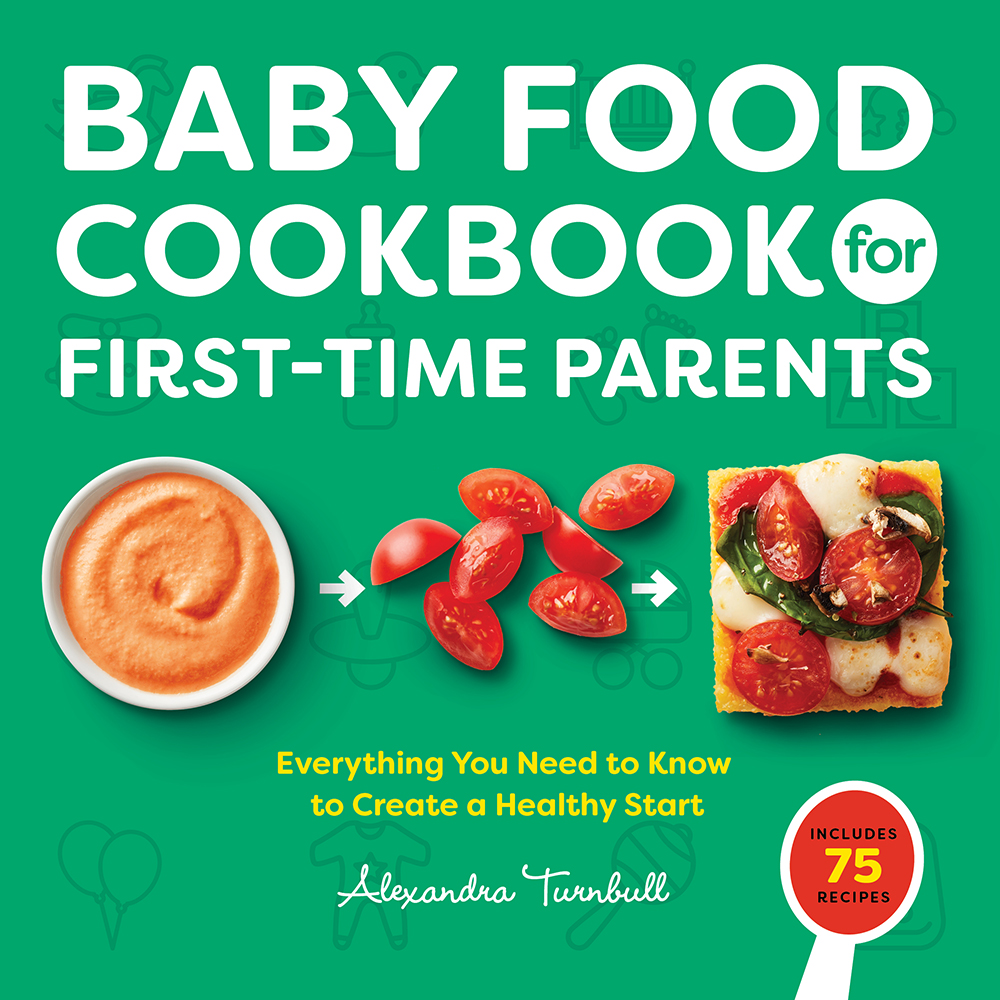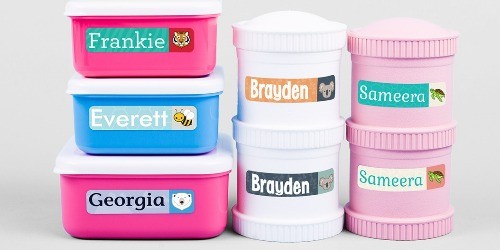
As a parent, you’ll inevitably encounter moments when your child asks about weight, body image, or comments about someone’s appearance. These moments can be tricky to navigate, but they also offer an important opportunity to model kindness, self-acceptance, and healthy body conversations.
While it’s important not to put too much emphasis on appearance and one’s body features, it’s impossible to completely avoid using any physical descriptors when trying to communicate.
Below, I’ll break down how to talk to your kids about weight based on age, how to handle comments from friends or family, and how to address weight-based issues that may pop up in school. Plus, I’ll share why this conversation is so important.
Table of Contents
Eating Disorders and Body Image
It’s important to understand the impact of body image concerns, especially when it comes to eating disorders. According to the National Eating Disorders Association (NEDA), “Approximately 9% of the U.S. population will struggle with an eating disorder in their lifetime.” Body dissatisfaction, which is linked to both dieting and eating disorders, is a significant issue.
Based on studies referenced in Smolak (2011), and similar research on early childhood body image, 50% of girls and 30% of boys are dissatisfied with their bodies by the age of 6, and these concerns tend to escalate during adolescence.
As a parent, your role is crucial in helping your child develop a healthy relationship with their body. Research suggests that open conversations about body image, promoting body positivity, and focusing on health over appearance can significantly reduce the likelihood of developing eating disorders. Supporting your child in developing resilience against societal pressures and teaching them self-acceptance is key.
How to Talk to Your Kids About Weight
For Toddlers (Ages 2-4)
At this age, children are just beginning to notice physical differences in themselves and others. They may point out people’s size, calling someone “big” or “small,” or use the word “fat” without any negative connotation. It’s important to keep things simple and neutral, focusing on positive language.
Example 1: Your child calls someone “fat”
If your child calls someone “fat,” it’s best to redirect the conversation in a calm and neutral way, helping them understand that everyone’s body is different and should be respected.
Response:
“People come in all shapes and sizes, and it’s nice to be kind about how we talk about others’ bodies. Instead of saying ‘fat,’ we can say that someone is tall, short, big, or small.”
Example 2: A child asks about someone’s weight
If your child asks why someone looks bigger or smaller, explain that everyone’s body grows in different ways, and that’s okay.
Response:
“Some people’s bodies are bigger and some are smaller, and that’s just how we are all different.”
For Preschoolers (Ages 4-6)
At this stage, children start to develop a deeper understanding of body image and may begin comparing themselves to others. They might notice differences in body shapes or sizes, and they may even hear others talk about being “on a diet” or losing weight. It’s important to emphasize body respect and discourage making judgments based on appearance.
Example 1: Your child calls someone “fat”
If your preschooler uses the word “fat” in a hurtful way, you can explain that our words should make others feel good, not bad.
A good rule of thumb is if someone can’t change something about them in 30 seconds or less then we shouldn’t be commenting about it. Weight would be one thing we can’t change about ourselves in under 30 seconds.
Response:
“It’s not nice to call someone ‘fat’ because that might hurt their feelings. We should always say kind things about others, and remember, everyone is unique in their own way.”
Example 2: Your child asks about weight or body size
If your child brings up the topic of someone trying to lose weight or discusses body size, it’s important to focus on health and well-being, not weight.
Response:
“Sometimes, people want to be healthier, and they may make different choices for their bodies. But being healthy is about eating foods that help our body grow and make us feel good, staying active, and being happy. Everyone’s body is special, and it doesn’t matter if it’s big or small.”
For Early Elementary Schoolers (Ages 6-9)
By this age, kids are starting to form their own body image and may be more aware of weight-related discussions, especially as they may hear things from peers or media. They may start to connect the concept of weight with self-esteem, so it’s essential to help them develop a balanced perspective.
Example 1: Your child calls someone “fat” or “skinny”
If your child comments on someone’s size, whether it’s positive or negative, guide them toward a kinder, more inclusive approach.
Response:
“It’s important to remember that we shouldn’t judge others based on their size. People’s bodies come in all different shapes, and that’s what makes us unique. Instead of focusing on someone’s size, let’s talk about what makes them special or what they’re good at.”
Example 2: Your child expresses concern about their body
If your child is starting to express concern about their own body or asks if they are too big or small, reassure them that all bodies are different, and health is about taking care of ourselves, feeling good, and not fitting a certain image.
Response:
“It’s natural to wonder about our bodies, but what’s most important is that we feel strong and healthy. Our bodies change as we grow, and we want to treat them well by eating nutritious foods and being active. There’s no one ‘right’ body shape—your body is perfect just the way it is!”
For Tweens and Preteens (Ages 9-12)
As children enter their preteen years, they may become more sensitive to body image and may begin to compare themselves to their peers, especially with the influence of social media and societal pressures. This is a key time to foster healthy habits, emphasize self-love, and model positive behaviors.
Example 1: Your child overhears someone discussing weight
If your child overhears a conversation about weight, dieting, or body image, it’s important to correct any misconceptions and help them understand that bodies are diverse and that weight isn’t the sole indicator of health.
Response:
“Sometimes people talk about diets or losing weight, but it’s important to remember that everyone’s body is different. What really matters is being healthy, not fitting into a certain size or number. We should focus on what makes our bodies feel good, like eating nourishing foods and staying active.”
Example 2: Your child expresses concern about their own weight
If your child becomes concerned about their weight or starts talking about wanting to lose weight, it’s important to emphasize self-worth, health, and the importance of inner qualities. Help them focus on what they love about their body and what it does for them.
Response:
“It’s completely okay to want to feel good about your body, but it’s important to focus on feeling strong and healthy instead of trying to look a certain way or weigh a certain number. Our bodies are amazing, and we want to treat them with care by eating nutritious foods, staying active, and practicing self-love.”
For Teenagers (Ages 13+)
By the time children reach their teenage years, they’re more likely to be aware of societal pressures related to body image and may start to struggle with self-esteem. This is a crucial time for continued support, open communication, and reinforcing body positivity.
Example 1: Your teen expresses concern about their body or compares themselves to others
If your teenager is comparing themselves to others or feels pressured to change their appearance, reinforce that self-worth is not tied to physical appearance and that health is about holistic well-being.
Response:
“I understand that you’re feeling self-conscious about your body, but it’s important to remember that everyone has their own journey. Your worth isn’t based on your size or appearance. Focus on what makes you feel good and strong, and treat your body with respect by nourishing it with good food and exercise.”
Example 2: Your teen talks about dieting or weight loss
If your teen mentions dieting or wanting to lose weight, engage in a conversation about healthy behaviors rather than focusing on weight loss alone. Try to focus making healthier habits as a family.
Response:
“Many people think about diets, but it’s better to focus on making healthy choices that feel good. Eating a balanced diet and staying active is more important than trying to lose weight quickly. A healthy lifestyle will help you feel better physically and mentally.”
Handling Comments from Friends and Family about Weight
Comments about weight from friends or family members can be challenging to handle, especially if they’re directed at your child. Here are some ways to address these situations:
Example: A family member comments on someone’s weight or body size
If a family member or friend makes a comment about someone’s body or weight in front of your child, it’s important to address it without shame, but with a focus on kindness and respect.
Response:
“We should always be careful about how we talk about other people’s bodies. Everyone’s body is unique and valuable, and we want to make sure we’re being respectful and kind. It’s important not to judge anyone based on their appearance.”
You can also teach your child how to respond to such comments in a way that fosters respect and self-confidence, like saying, “I think we should focus on the things that make people amazing, not how they look.”
Navigating School Challenges: Weight or Calorie-Based Projects
Sometimes, weight-based or calorie-focused assignments may pop up at school. These can be sensitive topics, so it’s important to approach them with care.
Example: School assignment focused on calorie counting or weight
If your child encounters a school assignment or discussion that focuses on weight or calories, help them see it as a learning opportunity rather than something to be concerned about.
Response:
“If the assignment is focused on calories or weight, it’s important to remember that food is about nourishment, not just numbers. We want to think about food as fuel for our bodies, which helps us grow, stay strong, and feel good. It’s okay to ask the teacher about how the assignment fits into a bigger picture about healthy eating.”
If your child’s school assigns weight or calorie-based projects, you can approach the teacher or administration with thoughtful solutions that focus on fostering a positive relationship with food, health, and body image. Here are some alternatives to suggest:
- Create a daily wellness tracker that includes fun activities (like walking the dog or dancing), hydration goals, and sleep habits.
- Research a meal from a different culture and identify its key nutrients (e.g., vitamins, protein, healthy fats). Create a presentation about its history and health benefits.
- Track improvements in a physical skill (e.g., how far they can throw a ball, hold a plank, or stretch over time) and reflect on how they feel stronger or more confident.
- Grow herbs or vegetables at home/school and document the process. Students can also visit a local farm and discuss sustainable food practices.
- Choose a favorite food and write about its sensory qualities (taste, smell, texture) and why they enjoy eating it.
- Plan a budget-friendly meal for their family, considering nutritional value, cost, and preparation time.
When discussing these alternatives, emphasize that:
- The goal is to promote positive habits and a healthy relationship with food and exercise.
- Focusing on weight or calories can inadvertently harm self-esteem and increase the risk of body image concerns.
- These projects align with the same educational goals but are inclusive, fun, and better suited to fostering long-term wellness.
By presenting these alternatives, you advocate for a healthier, more supportive learning environment for all children.
Final Thoughts
When it comes to how to talk to your kids about weight, body image, and how to navigate comments or assignments related to weight, know that it is an ongoing conversation. By approaching these topics with sensitivity, understanding, and openness, you can help foster positive attitudes toward bodies, health, and self-esteem. Remember, the goal is not just to educate about the complexities of body image but to empower your children to feel confident and strong in their unique bodies.





